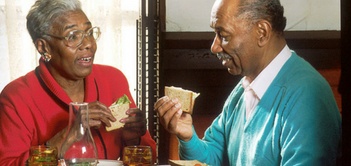Falls can be serious, sometimes fatal, for older adults. According to the Government of Canada, falls are the No. 1 cause of injury-related hospitalizations among Canadian seniors, and between 20 and 30 percent of older adults fall each year. On average, a senior is hospitalized because of a fall every 10 minutes.
It’s a common belief that falls are just a part of aging – that it’s inevitable seniors will fall. This is not necessarily true because most falls are preventable. Many ComForCare Home Care locations offer no obligation in-home fall safety evaluations and fall risk assessments. Our home safety check evaluates all aspects of someone’s living conditions. A trained professional will look at things such as:
Read More![Duel-Logo-CFC-AYS[rgb]](https://blog.comforcare.ca/hs-fs/hubfs/Duel-Logo-CFC-AYS%5Brgb%5D.jpg?width=525&name=Duel-Logo-CFC-AYS%5Brgb%5D.jpg)






